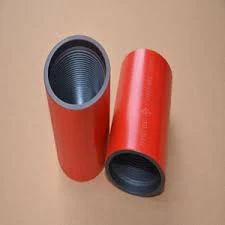- Afrikaans
- Albanian
- Amharic
- Arabic
- Armenian
- Azerbaijani
- Basque
- Belarusian
- Bengali
- Bosnian
- Bulgarian
- Catalan
- Cebuano
- Corsican
- Croatian
- Czech
- Danish
- Dutch
- English
- Esperanto
- Estonian
- Finnish
- French
- Frisian
- Galician
- Georgian
- German
- Greek
- Gujarati
- Haitian Creole
- hausa
- hawaiian
- Hebrew
- Hindi
- Miao
- Hungarian
- Icelandic
- igbo
- Indonesian
- irish
- Italian
- Japanese
- Javanese
- Kannada
- kazakh
- Khmer
- Rwandese
- Korean
- Kurdish
- Kyrgyz
- Lao
- Latin
- Latvian
- Lithuanian
- Luxembourgish
- Macedonian
- Malgashi
- Malay
- Malayalam
- Maltese
- Maori
- Marathi
- Mongolian
- Myanmar
- Nepali
- Norwegian
- Norwegian
- Occitan
- Pashto
- Persian
- Polish
- Portuguese
- Punjabi
- Romanian
- Russian
- Samoan
- Scottish Gaelic
- Serbian
- Sesotho
- Shona
- Sindhi
- Sinhala
- Slovak
- Slovenian
- Somali
- Spanish
- Sundanese
- Swahili
- Swedish
- Tagalog
- Tajik
- Tamil
- Tatar
- Telugu
- Thai
- Turkish
- Turkmen
- Ukrainian
- Urdu
- Uighur
- Uzbek
- Vietnamese
- Welsh
- Bantu
- Yiddish
- Yoruba
- Zulu
Teflon Coupling - High-Performance Solutions for Fluid Transfer
Understanding Teflon Couplings A Comprehensive Overview
Teflon, a brand name for polytetrafluoroethylene (PTFE), has become synonymous with durability and chemical resistance in various industrial applications. One of its most important uses is in the production of couplings, particularly in systems that require a reliable connection between pipes or hoses while maintaining a degree of flexibility and resistance to harsh environments. Teflon couplings are increasingly popular due to their unique properties that distinguish them from traditional materials.
What are Teflon Couplings?
Teflon couplings are components used to connect two pipes or hoses, often in fluid transfer applications. They are designed to accommodate slight misalignments between connecting parts while minimizing the risk of leakage or failure. Teflon's non-stick surface also ensures that materials do not adhere to the coupling, which is particularly beneficial in high-viscosity applications or where contamination is a concern.
Key Advantages of Teflon Couplings
1. Chemical Resistance One of the standout features of Teflon is its exceptional resistance to a wide range of chemicals, including acids, bases, and solvents. This characteristic makes Teflon couplings ideal for applications in chemical processing, pharmaceuticals, and food industries where exposure to harsh substances is inevitable.
2. Temperature Tolerance Teflon couplings can withstand extreme temperatures, typically ranging from -200°C to 260°C (-328°F to 500°F). This wide temperature tolerance allows them to be used in various environments, from cryogenic applications to high-heat operations.
3. Low Friction The low coefficient of friction of Teflon translates to lower wear and tear on the components it connects. This quality is particularly beneficial in dynamic applications where movement occurs, such as in pumps or conveyor systems.
teflon coupling

4. Long Service Life Due to their resistance to chemical and thermal degradation, Teflon couplings often outlast their metal or rubber counterparts, leading to reduced maintenance costs and downtime for replacement.
Applications of Teflon Couplings
Teflon couplings find their application in various fields including
- Chemical Processing Used to facilitate the safe transport of chemicals without the risk of contamination or reaction. - Food and Beverage Ensuring compliance with health regulations by maintaining product purity and resisting corrosion. - Pharmaceuticals Providing a sterile environment necessary for drug production while resisting chemical erosion. Installation and Maintenance
Proper installation is crucial for ensuring the efficacy of Teflon couplings. While these components are designed for easy use, they still require attention to detail to avoid issues such as over-tightening, which can damage the Teflon material. Regular inspections help to identify wear or signs of chemical exposure over time, although Teflon’s robustness means maintenance needs are minimal.
Conclusion
Teflon couplings represent a significant technological advancement in the way systems are designed for fluid transfer and connection. Their unique properties, including chemical resistance, temperature tolerance, and low friction, make them an invaluable choice for industries that require reliability and efficiency. As industries continue to evolve and demand more durable and versatile components, Teflon couplings are poised to play an increasingly critical role in ensuring operational success. Whether in chemical processing or food industries, their benefits are undeniable, making them a staple in modern engineering solutions.
-
Tubing Pup Joints: Essential Components for Oil and Gas OperationsNewsJul.10,2025
-
Pup Joints: Essential Components for Reliable Drilling OperationsNewsJul.10,2025
-
Pipe Couplings: Connecting Your World EfficientlyNewsJul.10,2025
-
Mastering Oilfield Operations with Quality Tubing and CasingNewsJul.10,2025
-
High-Quality Casing Couplings for Every NeedNewsJul.10,2025
-
Boost Your Drilling Efficiency with Premium Crossover Tools & Seating NipplesNewsJul.10,2025







